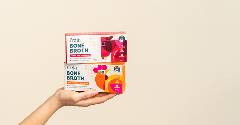News
Research shows adding iodine to salt may pose risks to some populations
23 Jun 2020A new study by the Norwegian’s Scientific Committee on Food and the Environment (VKM) concluded that although the addition of iodine to salt used in products throughout the country would benefit adolescents and women of childbearing age, the same increase could also be harmful in infants and small children.
Based on a benefits and risk analysis, the study concluded that achieving the specific iodization level needed for the deficient group cannot be determined without “posing increased risk of harm to others” or “that the benefits in one group outweigh the risks in others.” Infants and small children are at particular risk from over-iodized products due to their lower intake needs, according to the study.

At the same time, the study noted that while certain populations in Norway have “worryingly low” levels of iodine in their diets, there is currently no data on the prevalence of severe iodine deficiency in Norway. Nor could researchers identify any clinical consequences of mild to moderate intake deficiencies of iodine intake. The effects of severe iodine deficiency are well documented and include spontaneous abortion, stillbirth, low birth weight and stunted infant growth.
This research was performed by analyzing scientific papers and publications to evaluate the estimated intakes of iodine in population segments across the country as well as the effect of different scenarios of increasing iodization levels in household salt. While there was “limited” evidence surrounding the effects of hyper-consumption of iodine, the study was able to identify the existence of adverse effects for deficient intakes.
The study did determine that the adequate level of iodization or women of childbearing age and 13-year-olds is between 15 to 20 milligrams of iodine per kilogram of salt. Norwegian law limits the addition of iodine in salt to 5 milligrams, and the iodization of salt is not compulsory in the country.
Other European countries have increased the amount of iodine in salt in order to combat low levels of intake in the general population. Last year the Danish Food Agency increased the required iodine levels in salt from 13 milligrams per kilogram to 20 milligrams per kilogram. The decision was based on a 2013 study that found pregnant Danish women who were not taking iodine supplements remained deficient in the mineral even when ingesting iodine-fortified salt.
Food Navigator reported that Sweden and Finland increased the amount of iodine in salt to 50 and 25 milligrams per kilogram respectively. France and Germany take a voluntary approach to salt iodization.
Related news

Our most-read articles of 2025
23 Dec 2025
From trade tariffs to heavy metals in protein, we look back at some of the industry’s highlights of 2025 and round up our most-read stories of the year.
Read more
Bigging up bean-based products and consumption in Britain
19 Dec 2025
Non-profit organisation the Food Foundation has launched a campaign, “Bang in Some Beans”, designed to increase UK consumers’ legume consumption.
Read more
Ingredient transparency key to success in European natural health market
12 Dec 2025
Europe’s $40.7 billion supplements market is growing fast, fuelled by demand for products that support healthy ageing, mental wellbeing, and preventive health, say experts.
Read more
Whole Foods Market forecasts fibre frenzy for 2026
11 Dec 2025
Whole Foods Market has released its top 2026 trends, predicting that a fibre frenzy will take place next year as health-conscious consumers seek out nutritious, filling options.
Read more
Sorghum emerges as better-for-you hero ingredient
9 Dec 2025
With the launch of Novak Djokovic’s sorghum-based brand, the grain’s popularity in the better-for-you snacking sphere is on the rise, thanks to its nutritional and sensory properties.
Read more
Innovation promise in 'maturing' plant-based dairy alternatives market
8 Dec 2025
Plant-based dairy is a maturing market that still faces significant hurdles around taste, functionality, nutrition, and price, but industry is innovating fast, according to experts speaking at Fi Europe.
Read more
Celebrating the winners of the Fi Europe Innovation Awards 2025
3 Dec 2025
Food industry stakeholders celebrated as the winners of the Fi Europe Innovation Awards were announced at a ceremony in Paris.
Read more
Apply now for the Vitafoods Europe Innovation Awards 2026!
28 Nov 2025
Entries for the Vitafoods Europe Innovation Awards 2026 are now open! Game-changing companies have until 27 February to submit their entry across eight categories for the chance to win big.
Read more
Concerns swirl around cinnamon’s compliance with EU law
25 Nov 2025
Cinnamon may be a top functional ingredient, but it needs stronger protocols to ensure it meets EU food safety laws and quality standards, say researchers.
Read more
Bone broth: From old-fashioned to en vogue
24 Nov 2025
OXO’s entry into bone broth has turned the spotlight on this small but high-performance category – and there is still scope for growth, especially in the area of GLP-1 support.
Read more